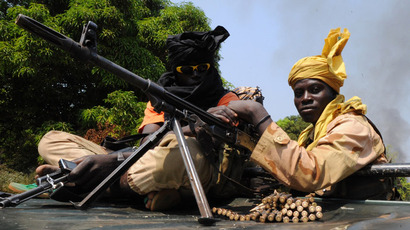935,000 displaced in Central African Republic amid ‘unprecedented’ violence
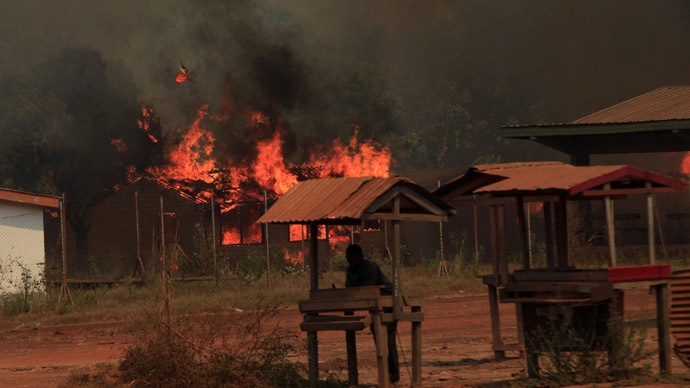
Targeted attacks against children, looting and burning of houses have been reported in the ongoing sectarian violence in Central African Republic by the UN’s refugee agency UNHCR. Hundreds of thousands have fled to refugee camps or hidden in the bush.
Violence between mostly Muslim ex-rebel Seleka members, whose
leader seized power last March, and Christian vigilante groups
“has pushed the number of internally displaced people (IDP) past
935,000 and is hampering humanitarian aid efforts” in Central
African Republic (CAR), UNHCR reported on Friday.
The international agency is struggling to gain access to some
45,000 of the displaced in the capital Bangui alone. According to
UNHCR, a total of 510,000 people – more half of the city’s
population – are sheltering in 67 sites in Bangui, or have moved
to live with host families.
“Targeted attacks against civilians, looting and the presence
of armed elements at some displacement sites have severely
limited humanitarian agencies’ access to those in need of urgent
assistance,” a UNHCR spokesman said.
Some 60 per cent of those displaced are children, the refugee
agency has estimated.
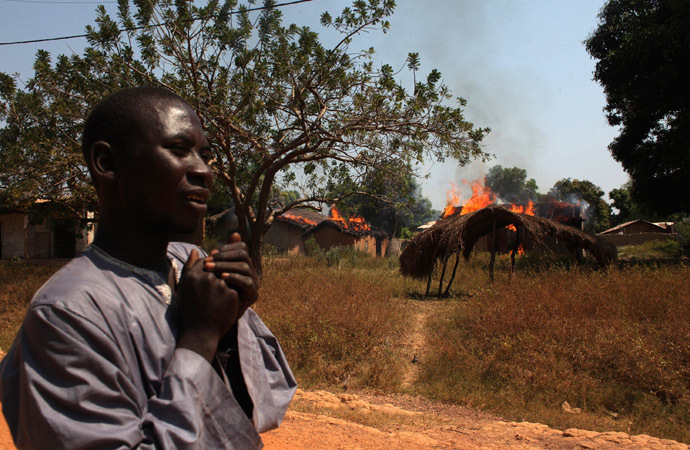
According to UNHCR, since the latest spate of violence in CAR
broke out in December, many of the people have gone into
“hiding in the bush, fearing fresh attacks.” Others have
left for neighboring African countries, with the estimated global
number of refugees from CAR reaching 240,000 by end of December.
The UN agency has been scaling up its presence in the country and
has requested $152.2 million for a 100-day humanitarian plan.
Earlier, the international children rights group UNICEF said in a
statement on its website that there have been “unprecedented
levels of violence against children” in CAR, with at least
two children reportedly beheaded at the end of the year.
“More and more children are being recruited into armed
groups, and they are also being directly targeted in atrocious
revenge attacks,” UNICEF Representative in CAR, Souleymane
Diabate, said.
UNICEF has confirmed the killings of at least 16 children by December 30, saying that 60 more had been injured and demanding that the attacks immediately stop.
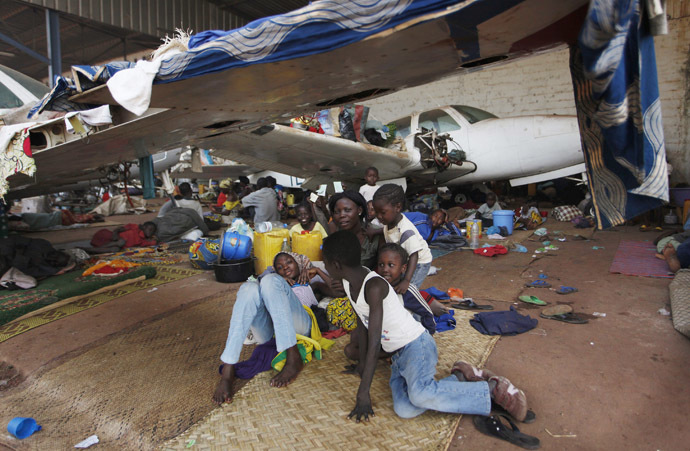
Doctors Without Borders recently reported another fatal incident
involving a minor, with doctor Gaetan Adouaka saying that a
12-year-old died from a gash on his skull. The group’s mission
has faced uncertainty since attackers have also started targeting
hospitals and refugee camps, according to Karline Kleijer, the
emergency manager of Doctors Without Borders.
“The hospitals… are invaded by armed man, we have people with
grenades in the hospital, who came there to attack patients
inside the hospital,” Kleijer told RT, adding that many
people hiding in the bush are also “too scared” to seek medical
or humanitarian aid.
French intervention: ‘zero results,’ set off by Chinese oil contracts?
The situation in CAR has been deteriorating despite last month’s
deployment of 1,600 French soldiers to the former French colony.
The move, which came less than a year since France sent its
troops to Mali to help fight insurgents there, was ordered by
President Francois Hollande, who said it has “no other motive
than to save lives,” although his pronouncements were
greeted with some suspicion at home.
French Defence Minister Jean-Yves Le Drian on Thursday visited
the country’s restive capital and vowed that France’s UN-mandated
mission in CAR will not be open-ended, AFP reported.
Speaking in Bangui, Le Drian claimed that French boots on the
ground in CAR will be as successful as they were in Mali, saying
that the French government “luckily… did not listen to those
experts” who at the time predicted a gloomy outcome.
According to the minister, intervening in Africa is also
“ensuring France’s security.”
“When there is a security vacuum, it’s an opportunity for all
sorts of trafficking and an open door to all types of
terrorism,” Le Drian stressed.
However, critics of the new French intervention to Africa said it
was triggered by much more prosaic motives, centered around the
country’s financial interests in the region.
“One of the basic reasons of conflicts in Africa now is the
competition between Western powers and China,” Bruno Drweski
of the Institute of Oriental Languages and Civilizations told RT.
The Chinese economy has recently been “much more active”
in Africa than the old West, Drweski explained.
Former President of CAR, Francois Bozize, “was kicked out of
power just at the moment when he signed an agreement with Chinese
oil companies,” the expert notes.
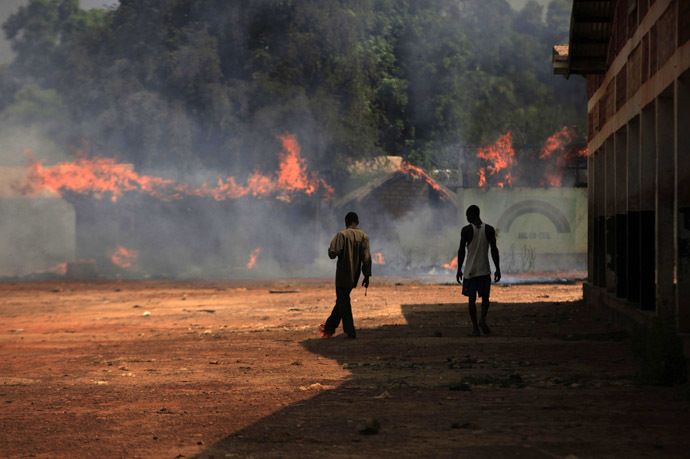
Alain Krivine, president of France’s new anti-capitalist party,
has been even more forthright in his judgement.
“France used a pretext of human rights defense, but in fact
it was aimed at protecting its economic interests. The CAR is
rich in resources but its value is mostly due to its strategic
location in the center of the vast and rich area, so it’s
eventually all about dominating and controlling the entire
region,” Krivine told RT.
According to Krivine, France’s colonial-era policies are to blame
for the creation of a number of “totally artificial states,
like CAR,” which has prepared some of the grounds for
conflicts in the region.
“And now they jump in with this operation which is stupid
militarily, economically and politically dangerous, scandalous
from a human perspective and will lead to zero results,”
Krivine argued.
For more on the situation in CAR, watch RT’s Maria Finoshina’s report.













